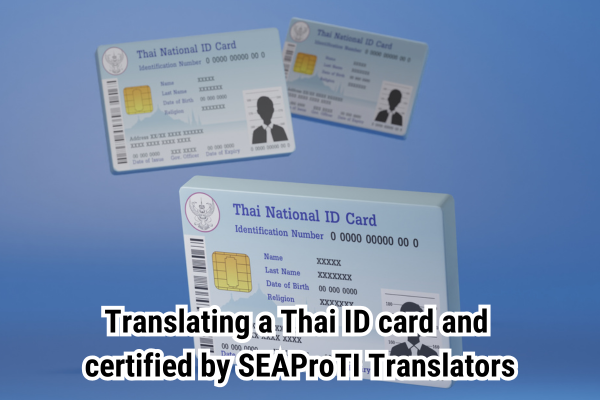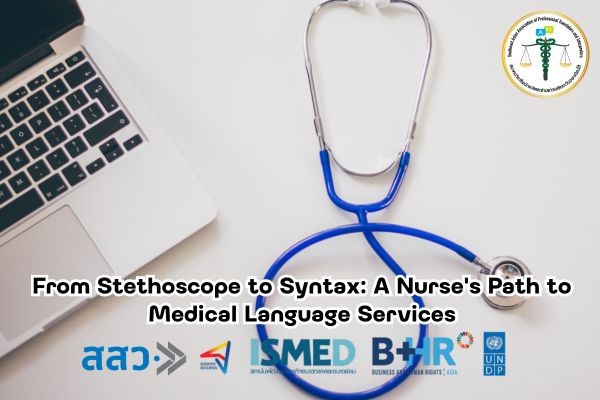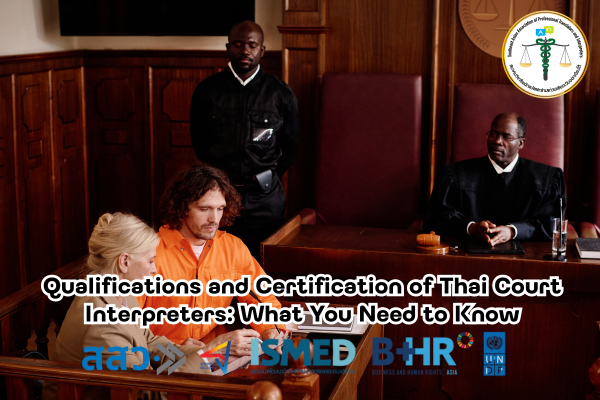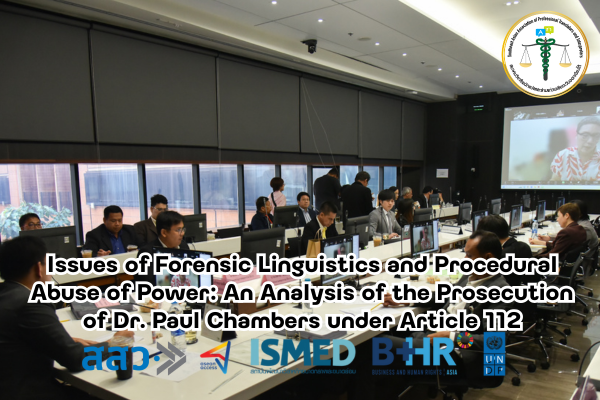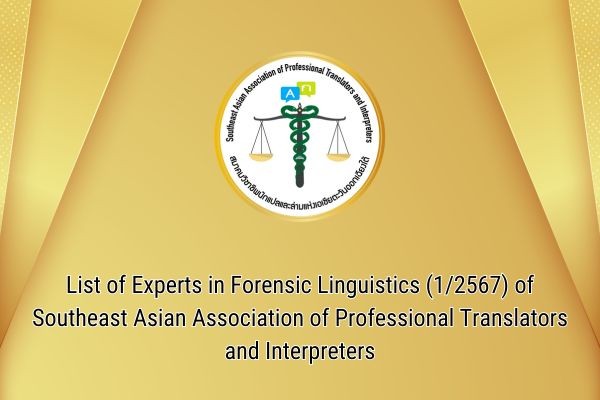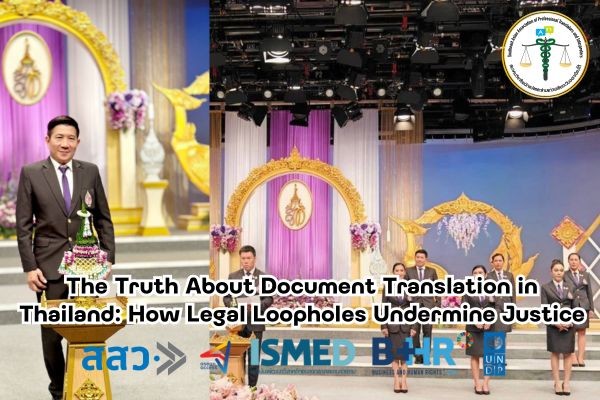The Unprofessionalism of Arbitration: Why Clients Prefer Thai Courts
23 February 2025, Bangkok – In Thailand’s justice system, dispute resolution can take the form of either court proceedings or arbitration, each with its own strengths and weaknesses. However, many clients, particularly in civil cases, tend to favor Thai courts over arbitration. The primary reasons stem from perceptions that arbitration lacks professionalism and presents several issues that undermine its credibility in the eyes of the parties involved. This article analyzes the factors behind this preference, focusing on the compassion of Thai courts, the overly rigid conduct of arbitrators, and the conflicts of interest arising from personal relationships.
1. Compassion and Flexibility of Thai Courts
One of the main reasons clients opt for Thai courts is their approach to adjudication, which emphasizes compassion and mediation, especially in civil cases involving interests such as debts or property. Judges often encourage the parties to negotiate and reach a mutual agreement, aiming to reduce conflict and find a solution acceptable to both sides. For instance, if a witness is unaware of an answer to a question, the judge will limit inquiries to what the witness knows and allow them to respond with “I don’t know” without causing significant disadvantage to their side. This approach fosters a sense of opportunity and fairness. Moreover, in the court process, judges are essentially strangers to the parties, having no direct or indirect stake in the case. This lack of personal interest enhances clients’ confidence in the impartiality of the proceedings.
2. Rigidity and Inappropriate Conduct of Arbitrators
In contrast, arbitration is often perceived as overly rigid, with arbitrators occasionally displaying inappropriate behavior. For example, they may pose every possible question, even when a witness lacks the knowledge to respond, and if the witness cannot answer, it becomes a vulnerability easily exploited by the opposing side. In some instances, arbitrators act as though they are advocates for one party, asking aggressive or leading questions that corner the witness. This stands in stark contrast to courts, where judges maintain neutrality and prevent questioning from crossing into excessive territory. Such rigidity and demeanor lead clients to feel that arbitrators lack flexibility and fail to consider the context of the case or the witness’s situation.
3. Conflicts of Interest and Personal Relationships
Another critical issue is the conflict of interest arising from the process of selecting arbitrators. In arbitration, parties typically have the right to choose their own arbitrator, which in theory should enhance fairness. In practice, however, this opens the door to bias, particularly when arbitrators have personal connections with one of the parties—such as being a former student, having studied or taught together, or graduating from the same university. While these relationships may not involve direct financial gain, they can create emotional bonds or subconscious bias. For example, if an arbitrator was once a student of a lawyer representing one side, feelings of gratitude or loyalty might unconsciously influence their decisions. Conversely, court judges are assigned by the system, not chosen by the parties, and lack personal incentives tied to knowing the litigants, making courts appear more trustworthy in clients’ eyes.
Conclusion
The perceived unprofessionalism of arbitration stems from its excessive rigidity, lack of flexibility, and conflicts of interest tied to personal relationships, such as those between students and teachers or university alumni. Meanwhile, Thai courts offer compassion, impartiality, and assurance against both direct and indirect interests, as judges are strangers to the parties with no stakes in the outcome. For these reasons, clients often view Thai courts as a more accessible and just option. If arbitration processes were reformed to enhance transparency and minimize personal connections, their credibility could potentially improve in the future.
SEAProTI’s certified translators, translation certification providers, and certified interpreters:
The Southeast Asian Association of Professional Translators and Interpreters (SEAProTI) has officially announced the criteria and qualifications for individuals to register as “Certified Translators,” “Translation Certification Providers,” and “Certified Interpreters” under the association’s regulations. These guidelines are detailed in Sections 9 and 10 of the Royal Thai Government Gazette, issued by the Secretariat of the Cabinet under the Office of the Prime Minister of the Kingdom of Thailand, dated July 25, 2024, Volume 141, Part 66 Ng, Page 100.
To read the full publication, visit: the Royal Thai Government Gazette
ความไม่เป็นมืออาชีพของอนุญาโตตุลาการ: เหตุใดลูกความจึงเลือกศาลไทยมากกว่า
23 กุมภาพันธ์ 2568, กรุงเทพมหานคร – ในกระบวนการยุติธรรมของไทย การระงับข้อพิพาทมีทั้งในรูปแบบศาลและอนุญาโตตุลาการ ซึ่งทั้งสองมีจุดเด่นและจุดด้อยต่างกัน อย่างไรก็ตาม ลูกความในหลายคดี โดยเฉพาะคดีแพ่ง มักเลือกที่จะพึ่งพาศาลไทยมากกว่าการใช้บริการอนุญาโตตุลาการ เหตุผลสำคัญมาจากความรู้สึกว่าอนุญาโตตุลาการขาดความเป็นมืออาชีพ และมีปัญหาหลายประการที่ทำให้กระบวนการนี้ไม่น่าเชื่อถือในสายตาของคู่กรณี บทความนี้จะวิเคราะห์ถึงสาเหตุที่ลูกความรู้สึกเช่นนั้น โดยเน้นที่ความเมตตาของศาล การดำเนินการที่เข้มงวดเกินไปของอนุญาโตตุลาการ และปัญหาผลประโยชน์ทับซ้อนที่เกิดจากความสัมพันธ์ส่วนตัว
1. ความเมตตาและความยืดหยุ่นของศาลไทย
หนึ่งในเหตุผลหลักที่ลูกความเลือกศาลไทยคือแนวทางการพิจารณาคดีที่เน้นความเมตตาและการไกล่เกลี่ย โดยเฉพาะในคดีแพ่งที่เกี่ยวข้องกับผลประโยชน์ เช่น หนี้สินหรือทรัพย์สิน ผู้พิพากษามักส่งเสริมให้คู่กรณีพูดคุยตกลงกันได้ เพื่อลดความขัดแย้งและหาทางออกที่ทั้งสองฝ่ายยอมรับได้ ตัวอย่างเช่น หากพยานไม่ทราบคำตอบในบางประเด็น ผู้พิพากษาจะจำกัดคำถามเฉพาะสิ่งที่พยานรู้ และอนุญาตให้พยานตอบว่า “ไม่ทราบ” โดยไม่ทำให้ฝ่ายนั้นเสียเปรียบมากนัก แนวทางนี้สร้างความรู้สึกว่าศาลให้โอกาสและมีความเป็นธรรมมากกว่า นอกจากนี้ ในกระบวนการศาล ผู้พิพากษาเปรียบเสมือนคนแปลกหน้าที่ไม่มีความสัมพันธ์ใด ๆ กับคู่กรณีทั้งทางตรงและทางอ้อม จึงไม่มีส่วนได้ส่วนเสียที่อาจส่งผลต่อการตัดสิน ทำให้ลูกความรู้สึกมั่นใจในความเป็นกลางของกระบวนการ
2. ความเข้มงวดและพฤติกรรมที่ไม่เหมาะสมของอนุญาโตตุลาการ
ในทางกลับกัน อนุญาโตตุลาการมักถูกมองว่าดำเนินการด้วยความเข้มงวดเกินไป และบางครั้งแสดงพฤติกรรมที่ไม่เหมาะสม เช่น การตั้งคำถามทุกคำถาม แม้ว่าพยานจะไม่รู้คำตอบ และหากพยานตอบไม่ได้ ก็กลายเป็นจุดอ่อนที่ถูกโจมตีได้ง่าย บางกรณี อนุญาโตตุลาการถึงขั้นทำตัวเหมือนทนายฝ่ายใดฝ่ายหนึ่ง โดยตั้งคำถามเชิงกดดันหรือต้อนพยานจนมุม ซึ่งต่างจากศาลที่ผู้พิพากษาจะรักษาความเป็นกลางและไม่ปล่อยให้การซักถามกลายเป็นการรุกล้ำเกินขอบเขต ความเข้มงวดและทัศนคติแบบนี้ทำให้ลูกความรู้สึกว่าอนุญาโตตุลาการขาดความยืดหยุ่นและไม่คำนึงถึงบริบทของคดีหรือพยาน
3. ผลประโยชน์ทับซ้อนและความสัมพันธ์ส่วนตัว
ปัญหาสำคัญอีกประการคือผลประโยชน์ทับซ้อนที่เกิดจากกระบวนการเลือกอนุญาโตตุลาการ ในระบบอนุญาโตตุลาการ คู่กรณีมักมีสิทธิ์เลือกอนุญาโตตุลาการของตนเอง ซึ่งในทางทฤษฎีควรเพิ่มความเป็นธรรม แต่ในทางปฏิบัติกลับเปิดช่องให้เกิดความลำเอียง โดยเฉพาะเมื่ออนุญาโตตุลาการมีความสัมพันธ์ส่วนตัวกับคู่กรณี เช่น เป็นลูกศิษย์ เคยเรียนหรือสอนด้วยกัน หรือจบจากมหาวิทยาลัยเดียวกัน ความสัมพันธ์เหล่านี้ แม้จะไม่ใช่ผลประโยชน์ทางการเงินโดยตรง แต่ก็สร้างความรู้สึกผูกพันหรืออคติได้ ตัวอย่างเช่น หากอนุญาโตตุลาการเคยเป็นลูกศิษย์ของทนายฝ่ายหนึ่ง ความรู้สึกขอบคุณหรือความผูกพันอาจส่งผลต่อการตัดสินโดยไม่รู้ตัว ในทางกลับกัน ผู้พิพากษาในศาลถูกกำหนดโดยระบบ ไม่ใช่คู่กรณีเลือกเอง และไม่มีแรงจูงใจส่วนตัวจากการรู้จักคู่กรณี ทำให้ศาลดูน่าเชื่อถือกว่าในมุมมองของลูกความ
สรุปส่งท้าย
ความไม่เป็นมืออาชีพของอนุญาโตตุลาการที่ลูกความรู้สึกได้ มาจากความเข้มงวดเกินไปในการดำเนินการ การขาดความยืดหยุ่น และปัญหาผลประโยชน์ทับซ้อนที่เกิดจากความสัมพันธ์ส่วนตัว เช่น การเป็นลูกศิษย์หรือเพื่อนร่วมมหาวิทยาลัย ในขณะที่ศาลไทยนำเสนอความเมตตา ความเป็นกลาง และความปลอดภัยจากส่วนได้ส่วนเสียทั้งทางตรงและทางอ้อม เนื่องจากผู้พิพากษาเป็นคนแปลกหน้าที่ไม่มีความผูกพันกับคู่กรณี ด้วยเหตุนี้ ลูกความจึงมักเลือกศาลไทยเป็นทางออกที่ “เข้าถึงได้” และ “เป็นธรรม” มากกว่าในสายตาของพวกเขา หากมีการปฏิรูปกระบวนการอนุญาโตตุลาการให้โปร่งใสและลดความสัมพันธ์ส่วนตัวลง อาจช่วยเพิ่มความน่าเชื่อถือในอนาคตได้
เกี่ยวกับนักแปลรับรอง ผู้รับรองการแปล และล่ามรับรองของสมาคมวิชาชีพนักแปลและล่ามแห่งเอเชียตะวันออกเฉียงใต้
สมาคมวิชาชีพนักแปลและล่ามแห่งเอเชียตะวันออกเฉียงใต้ (SEAProTI) ได้ประกาศหลักเกณฑ์และคุณสมบัติผู้ที่ขึ้นทะเบียนเป็น “นักแปลรับรอง (Certified Translators) และผู้รับรองการแปล (Translation Certification Providers) และล่ามรับรอง (Certified Interpreters)” ของสมาคม หมวดที่ 9 และหมวดที่ 10 ในราชกิจจานุเบกษา ของสำนักเลขาธิการคณะรัฐมนตรี ในสำนักนายกรัฐมนตรี แห่งราชอาณาจักรไทย ลงวันที่ 25 ก.ค. 2567 เล่มที่ 141 ตอนที่ 66 ง หน้า 100 อ่านฉบับเต็มได้ที่: นักแปลรับรอง ผู้รับรองการแปล และล่ามรับรอง




